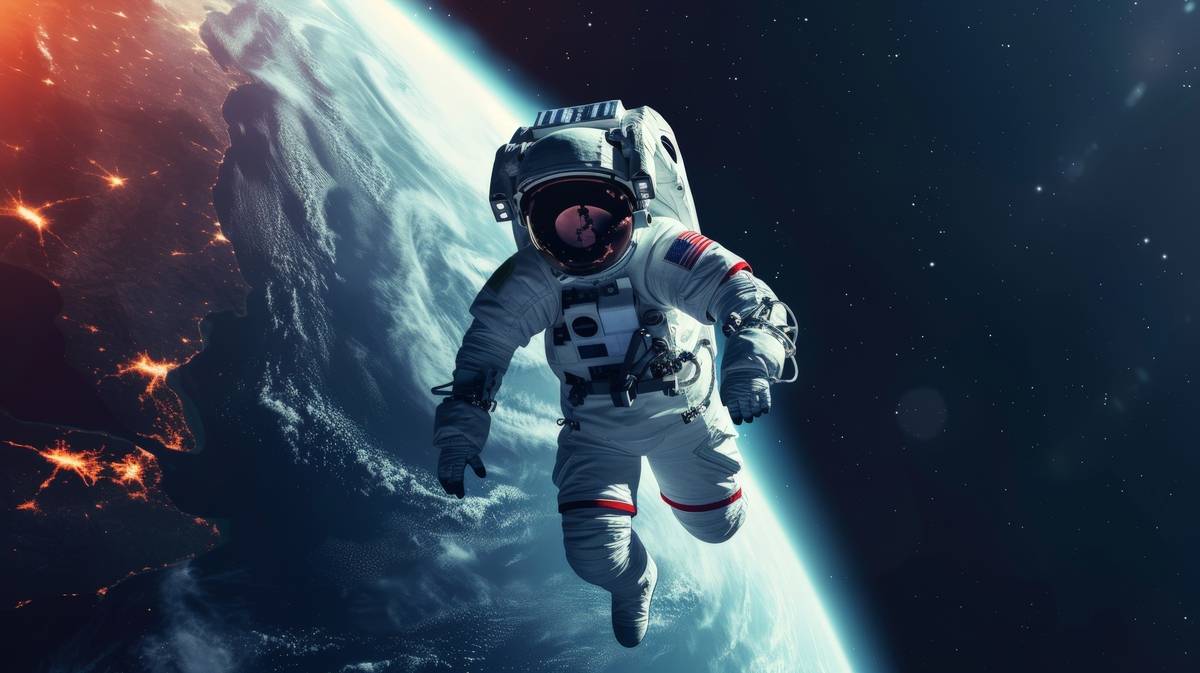
The Final Frontier: Students Train to Support Astronaut Health
- foodfightadmin
- June 19, 2024
- Nutrition
- rsc pages, rscl
- 0 Comments
As humanity sets its sights on deeper space exploration, ensuring the health and well-being of astronauts has never been more critical. A new training program is gearing up to equip students with the skills needed to maintain astronaut health on long-duration missions.
The innovative initiative, developed by NASA in collaboration with the European Space Agency and universities, aims to train the next generation of scientists and engineers in space health management. This program addresses the unique challenges of keeping astronauts healthy in the harsh conditions of space, where traditional medical resources are limited.
Dr. Jennifer Fogarty, Chief Scientist at NASA’s Human Research Program, emphasizes the program’s importance. “Space exploration is advancing rapidly, and we need a workforce prepared to tackle the complex health issues astronauts face,” she says. “This training program is designed to build that expertise.”
The curriculum covers a range of topics, including space medicine, life support systems, and the psychological impacts of long-term space travel. Students will learn how to monitor and manage the health of astronauts, develop countermeasures for space-related health risks, and create innovative solutions for medical challenges in space.
One key component of the program is hands-on experience. Students will have the opportunity to work in state-of-the-art simulation labs, where they can apply their knowledge in realistic space mission scenarios. These labs mimic the conditions of space, allowing students to practice medical procedures and health management strategies in a controlled environment.
Dr. Michael Smith, a professor at one of the participating universities, highlights the value of this practical training. “Simulations provide a safe space for students to learn and make mistakes. They can experiment with different approaches to solving health problems, which is crucial for developing effective strategies for real missions,” he explains.
The program also emphasizes the importance of interdisciplinary collaboration. Students from various fields, including medicine, engineering, and psychology, will work together on projects. This collaborative approach mirrors the teamwork required in actual space missions, where specialists must integrate their expertise to ensure the overall health and safety of astronauts.
Beth Johnson, a student enrolled in the program, shares her excitement. “This training is a unique opportunity to combine my passion for medicine with my interest in space exploration. It’s thrilling to be part of a program that could contribute to the success of future missions,” she says.
In addition to technical skills, the program addresses the psychological aspects of space travel. Long-duration missions can take a toll on mental health, and students will learn strategies to support astronauts in coping with isolation, confinement, and the stresses of spaceflight. This holistic approach ensures that future space health professionals are equipped to address both physical and mental health challenges.
The initiative also includes partnerships with private space companies, providing students with insights into the commercial space industry. These collaborations offer students a broader perspective on the future of space exploration and the diverse opportunities available in the field.
As space agencies and private companies plan for missions to Mars and beyond, the demand for trained professionals in space health is expected to grow. This training program aims to meet that demand by producing graduates who are ready to tackle the challenges of maintaining astronaut health in the most extreme environments.
The long-term goal of the program is to create a sustainable pipeline of talent that will support space exploration for decades to come. By investing in education and training today, NASA and its partners are laying the groundwork for the future of human spaceflight.
“This program is about more than just preparing students for jobs,” Dr. Fogarty says. “It’s about inspiring the next generation to push the boundaries of what’s possible and to play a crucial role in the journey to Mars and beyond.”
As the program progresses, its impact will be closely watched by the space community. The success of these students could very well determine the success of future space missions, making this training program a pivotal development in the ongoing quest to explore the final frontier.








